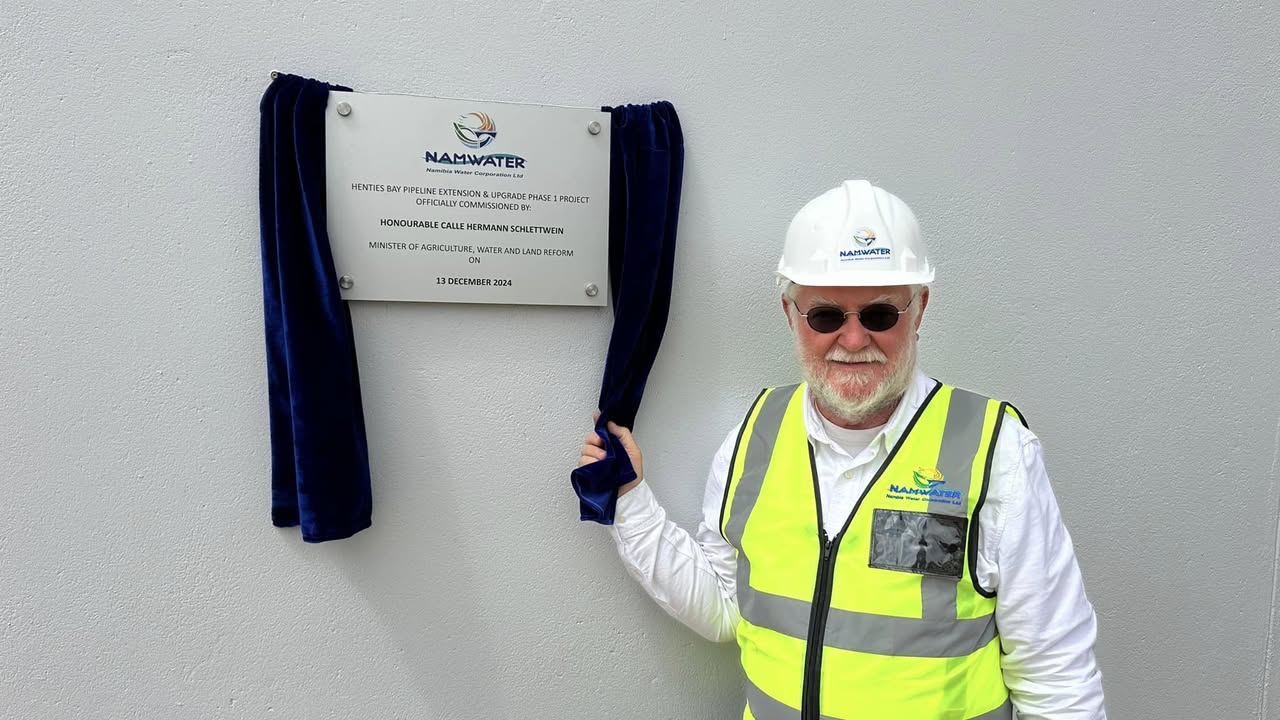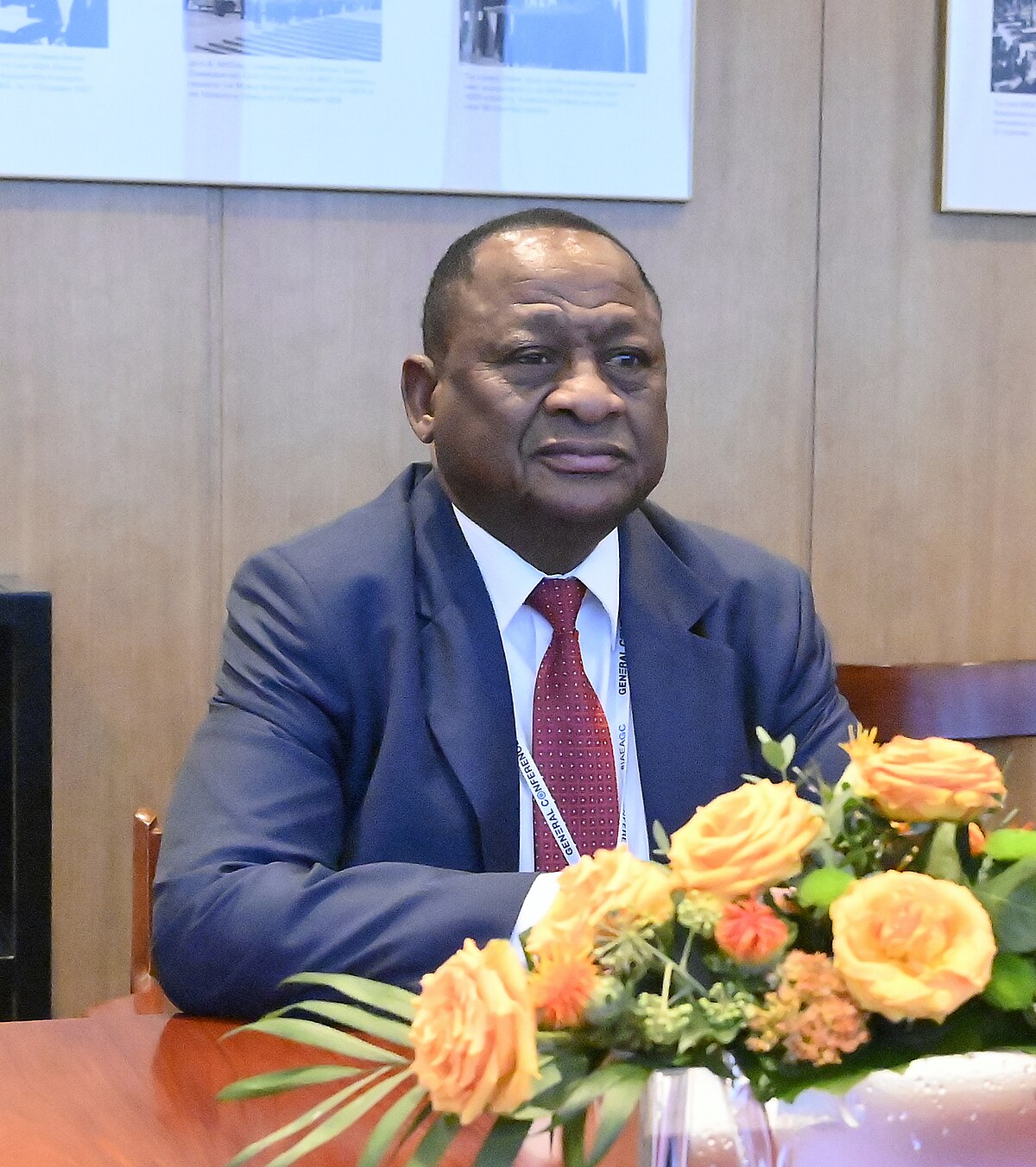WHAT the High Court considered good for the goose – his co-accused – on Wednesday, was also good for the gander – fraud convict Carl Brune – when he was sentenced to a three-year prison term, just like his erstwhile partner in crime had been almost seven months ago.
Pleas and arguments that he should not be given a direct jail term for his role in a fraud scheme aimed at Standard Bank Namibia between July 1995 and November 1996 failed to keep Brune (49) out of prison. Judge Annel Silungwe decided on Wednesday to sentence him to six years imprisonment, with three years were suspended for five years on condition that Brune is not convicted of fraud again in that time.But even after the sentence, Brune and his defence counsel, Rean Strydom, did not give up the fight.Strydom first applied to the Judge to be given leave to appeal against the sentence – a bid that Judge Silungwe dismissed with the statement that in his opinion Brune did not have reasonable prospects of success.Strydom persisted after the rejection, asking the Judge to allow Brune to remain free on bail while he prepared a petition to the Chief Justice to be allowed to appeal against the sentence.That application, too, was dismissed, and Brune was left with no alternative but to accompany two court orderlies into the underground tunnel that connects the High Court with the Magistrate’s Court holding cells – facing three years behind bars.Brune admitted on Monday that he and his former co-accused, who was sentenced to an identical jail term after he had pleaded guilty in October last year, had worked together to defraud Standard Bank Namibia of some N$446 814 over an almost 16-month period.Brune had been the Branch Manager of South African computer company Unisys/Unidata, and in that capacity had had a business relationship with Coetzee, the bank’s Manager:Network Control.Coetzee was tasked with selecting and buying computer equipment for the bank.They both admitted that they had struck a deal so that they could make extra money by Brune issueing fraudulent invoices for computer equipment sold to the bank.The invoices inflated the cost of the equipment above the price that Unisys/Unidata’s head office in South Africa had set.Coetzee would, in turn, process the cheques through Unisys/Unidata’s petty cash account in Windhoek, from where the proceeds realised from the diffrence between the real and inflated prices were divided equally between Brune and Coetzee.Both pleaded guilty to eight counts of fraud, admitting that on eight occasions between July 10 1995 and November 25 1996 they made Standard Bank Namibia overpay for computer equipment as a result of their scheme.The bank has since recovered most of the money it lost.During the sentencing, Judge Silungwe told Brune that he did not believe either Brune or Coetzee in so far as they had tried to blame each other for having initiated the scheme.”It seems that both of them do not have clean hands in the matter,” the Judge said.”The so-called white-collar crime of fraud in the workplace is not only increasing in this country, but is assuming epidemic proportions,” he remarked.As a result, such crimes should be met with deterrent sentences that would make anyone think twice before committing that sort of crime.Regarding the request that Brune should be given a fine rather than a prison sentence, Judge Silungwe commented that in serious cases, fines should be avoided so as not to create the impression that those with money could buy their freedom once they had been caught breaking the law.Care had to be taken to ensure that serious crimes such as fraud, corruption, and other offences were not reduced to a mere commercial risk, the Judge said.Public Prosecutor Job Kozonguizi appeared for the State in the last stages of Brune’s trial.Judge Annel Silungwe decided on Wednesday to sentence him to six years imprisonment, with three years were suspended for five years on condition that Brune is not convicted of fraud again in that time.But even after the sentence, Brune and his defence counsel, Rean Strydom, did not give up the fight.Strydom first applied to the Judge to be given leave to appeal against the sentence – a bid that Judge Silungwe dismissed with the statement that in his opinion Brune did not have reasonable prospects of success.Strydom persisted after the rejection, asking the Judge to allow Brune to remain free on bail while he prepared a petition to the Chief Justice to be allowed to appeal against the sentence.That application, too, was dismissed, and Brune was left with no alternative but to accompany two court orderlies into the underground tunnel that connects the High Court with the Magistrate’s Court holding cells – facing three years behind bars.Brune admitted on Monday that he and his former co-accused, who was sentenced to an identical jail term after he had pleaded guilty in October last year, had worked together to defraud Standard Bank Namibia of some N$446 814 over an almost 16-month period.Brune had been the Branch Manager of South African computer company Unisys/Unidata, and in that capacity had had a business relationship with Coetzee, the bank’s Manager:Network Control.Coetzee was tasked with selecting and buying computer equipment for the bank.They both admitted that they had struck a deal so that they could make extra money by Brune issueing fraudulent invoices for computer equipment sold to the bank.The invoices inflated the cost of the equipment above the price that Unisys/Unidata’s head office in South Africa had set.Coetzee would, in turn, process the cheques through Unisys/Unidata’s petty cash account in Windhoek, from where the proceeds realised from the diffrence between the real and inflated prices were divided equally between Brune and Coetzee.Both pleaded guilty to eight counts of fraud, admitting that on eight occasions between July 10 1995 and November 25 1996 they made Standard Bank Namibia overpay for computer equipment as a result of their scheme.The bank has since recovered most of the money it lost.During the sentencing, Judge Silungwe told Brune that he did not believe either Brune or Coetzee in so far as they had tried to blame each other for having initiated the scheme.”It seems that both of them do not have clean hands in the matter,” the Judge said.”The so-called white-collar crime of fraud in the workplace is not only increasing in this country, but is assuming epidemic proportions,” he remarked.As a result, such crimes should be met with deterrent sentences that would make anyone think twice before committing that sort of crime.Regarding the request that Brune should be given a fine rather than a prison sentence, Judge Silungwe commented that in serious cases, fines should be avoided so as not to create the impression that those with money could buy their freedom once they had been caught breaking the law.Care had to be taken to ensure that serious crimes such as fraud, corruption, and other offences were not reduced to a mere commercial risk, the Judge said.Public Prosecutor Job Kozonguizi appeared for the State in the last stages of Brune’s trial.
Stay informed with The Namibian – your source for credible journalism. Get in-depth reporting and opinions for
only N$85 a month. Invest in journalism, invest in democracy –
Subscribe Now!






